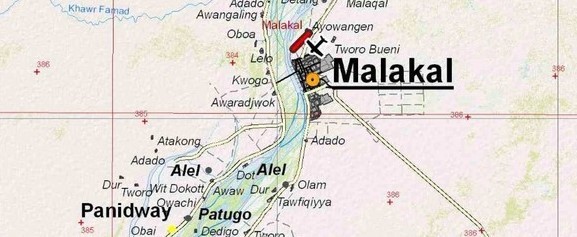Authorities in Malakal town of South Sudan’s Upper Nile State have warned of looming hunger due to the floods in parts of the state.
In an interview with Radio Tamazuj, John Ayual Monynak, the director-general in the state agriculture ministry, said communities in parts of Upper Nile will face hunger in the coming months due to crop failure this year.
“Between May and August of 2020, there were droughts. So, no one grew crops. But as it started raining, floods started coming from the River Nile and bushes through Jonglei. From September until now, the floodwaters continue to rise. Areas like Akoka, Baliet, Adong, and Agilaciel expect no harvests due to the floods,” Ayual explained.
He added, “This year, the harvest would have been better if it were not because of the floods. 80 percent of the arable lands have been submerged, and as we speak floodwaters continue advancing to the rest of the areas. In a place like Akoka, residents are fleeing the floods and for the little crop yields there, there is a competition between the locals and birds.”
James Majok, the state Relief and Rehabilitation Commission (RRC) deputy director, said the humanitarian situation has deteriorated in Upper Nile over the past months.
“We expect no harvest due to the droughts and floods. Again, people are being displaced from the eastern Nuer areas like Nasser and Olang. From northern Jonglei, more displaced people have been arriving in Malakal and some are proceeding to Sudan. So, I am appealing to the government and aid agencies to support people in Upper Nile,” Majok said.
Ajak Wer Lual, the secretary-general of the Upper Nile State government, also appealed for humanitarian intervention, warning of a dire humanitarian crisis by 2021 if there is no support.
The government official said they have been overstressed and that they could not adequately meet the needs of the population.
Last week, a report released jointly by the government and the UN agencies, projected that 7.24 million people in parts of the country will go hungry by 2021 due to the combined effects of the floods, conflicts, and Covid-19.




